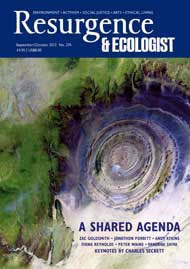I warmed to Carol Ann Duffy’s book of bees. Took me a while. To those of us who don’t pretend to be poetry buffs, a lot of modern verse takes some unravelling. Duffy’s work is more down to earth; she doesn’t try to pull one over on us, which is a breath of air. She writes accessible stuff, avoiding the criticism King James I levelled at John Donne, whose poetry he is alleged to have said was like the wisdom of God in that “it passeth all understanding.”
The Bees is a collection of verse for dipping into, for mulling over, quietly. It has a sense of secateurs-musing about it as its author wanders around a garden allowing random thoughts to stray into the mind and onto the page like pollinating bees to flowers, “buzzwords...flawless, airy maps” (Bees). It’s nice when a line or two of verse leaves something ringing in the head – “A flop back for a kip in the sun, dropping the gun” (The Falling Soldier). Seemingly unconnected subjects slide before our eyes; she looks up and gives us a song on Luke Howard, Namer of Clouds, seeing in the clouds, “dragons and unicorns; Hamlet’s camels, weasels and whales”.
She tells us that a poem is “a spell of kinds” (Spell); words, “a silver thread stitching the night” (Scheherazade); and how she “might have tied a blade of grass, a green ring for your finger” (Rings). It’s good stuff. “Who hasn’t tossed a coin in a hat for the busker on blues harmonica,” she asks, “heartbreak in the rain...or smiled at the ragged choir rattling their tins?” (Music); and The Woman in the Moon asks us what we have done to the world...
I didn’t go for all of it. A few of the poems I found a bit hefty. In Ariel, for instance, “where the bee sucks, neonicotinoid insecticides in a cowslip’s bell lie,” with the systemic spray hanging on the bough, was something that could have been better handled. The Shakespeare didn’t add to it for me; it took it away. Then I suppose that’s just a personal thing. Perhaps some of us react to poetry rather than intellectualise about it, or pretend to. For me, good, memorable stuff creates an image and leaves it resonating in the memory. Duffy is a master of that. She’s a bit like listening to the radio: you get better pictures.
Augustus Caesar had a good pointer on this, recounting of a poet of his day that he would rather be wondered at than understood, and of that remark Duffy stands wholly innocent, unlike some of today’s heavyweights who appear to like us squirming under the torrid tangles that they got off on but nobody else is likely to without a lot of yawning.
The poetry of The Bees is far best when read out loud. John Barleycorn works brilliantly like this, whereas when I read it silently, I thought it flat. Not so on the tongue. It’s great. Last Post hovers about, especially if you listened to Jeremy Irons reading it at Westminster Abbey during the special Armistice Day service following the demise of the last three WWI veterans living in Britain.
And I like Duffy. She seems a self-effacing, modest individual, of whom it might be guessed that poetry comes easily. You get the feeling that, as with a born artist who can sketch without a stroke of difficulty, you know you’re dealing with a lot of natural talent; she’s the real McCoy, to use an expression that she might have used because she’s not averse to lobbing a few clichés about, albeit in their proper place.
The Bees is a homage. Duffy sees bees as “the batteries of orchards, gardens”. She mourns the loss of The English Elms – that’s one to go back to – “great, masterpiece trees”. And I liked her bat hanging “like a suicide” in Parliament. The White Horses put me in mind of Edwin Muir’s The Horses, just as lofty.
She begins with bees and ends with them, with a bit of a sting in the tail about how we need to think about what we’re doing to them. To an old beekeeper, that’s a worthy sentiment and makes the whole effort worthwhile.







